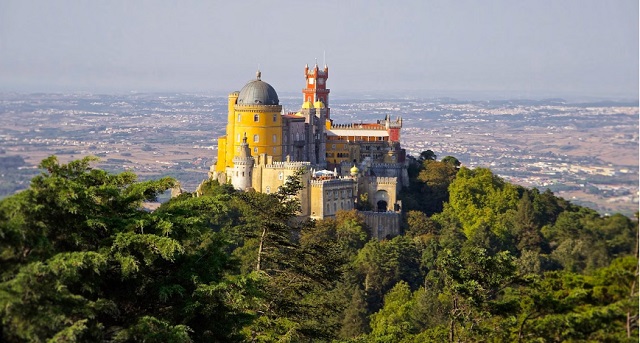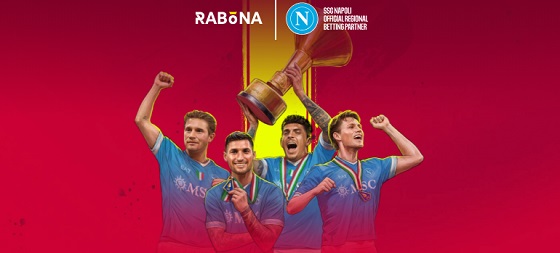Also Interesting
Best Ways to Legalise Your Stay in Portugal: Startup Visa vs. D7 Visa

Portugal offers multiple visa options for those looking to legalize their stay, with the Startup Visa and D7 Visa being popular choices. Both provide unique pathways to residency, catering to different types of applicants. While the Startup Visa focuses on entrepreneurs aiming to establish businesses, the D7 Visa is tailored for individuals with passive income sources.
Albert Ioffe, Legal and Compliance Officer at Immigrant Invest, breaks down the costs, and requirements for both visas, including the process to obtain Portugal Passive Income Visa, helping you decide which option suits your circumstances best.
How to Relocate to Portugal with a Startup Visa
The Startup Visa is designed for entrepreneurs. Portugal encourages the creation of innovative businesses that contribute to the country’s economy.
Costs. Setting up a startup in Portugal can involve initial investment costs, business incorporation fees, and other startup expenses. While no specific minimum investment is required, you need to prove you have the financial means to establish and sustain your business.
Additional costs may include legal fees for business setup, accounting services, and any initial hiring of employees.
Process. You begin by applying to a certified incubator in Portugal, which will assess the feasibility of your business idea. If accepted, the incubator will issue a certificate, allowing you to apply for the visa. Once you receive the visa, you can relocate to Portugal.
The entire approval process can take four months, so it’s important to apply well in advance.
Documents. Key documents to get Portugal Startup Visa include:
● a valid passport;
● proof of financial resources;
● a solid business plan;
● the incubator’s acceptance letter.
Supporting documents, such as a criminal background check and health insurance, are also required.
Requirements. Your business idea must be innovative, and you must intend to create jobs in Portugal. Also, your business should be technology-based or scalable. Entrepreneurs should also demonstrate financial viability, which could include showing bank statements or other proof of funding.
How to Immigrate to Portugal with a D7 Visa
The D7 Visa offers a path to residency for those with stable, passive income. This includes pensions, investments, or rental income. It’s a popular choice for retirees and individuals seeking a slower, less business-driven route to Portuguese residency.
Costs. The financial requirements for the D7 Visa depend on your income. You must demonstrate sufficient funds to support yourself while living in Portugal.
The general rule is that you need at least the equivalent of the Portuguese minimum wage, currently set at around €820 per month. If you are bringing a family, the income requirement increases by 50% for a spouse and for 30% for each dependent child.
Process. After gathering the necessary documents, you can apply for the D7 Visa at the Portuguese consulate in your country of residence. Once approved, you receive a temporary visa, allowing you to enter Portugal and apply for your residence permit.
The permit is usually valid for two years and can be renewed.
Documents. Required documents include:
● proof of passive income;
● a valid passport;
● health insurance;
● proof of accommodation in Portugal.
Additional documentation, such as tax returns, may also be required to demonstrate the sustainability of your income.
Requirements. You must have a regular passive income source that can sustain you and any dependents during your stay in Portugal. Your income should come from legitimate, verifiable sources, such as investments or rental properties.
Also, you must prove sufficient savings to cover living expenses for at least 12 months.
Portugal D7 Passive Income Visa vs. Startup Visa
The main difference between the two visas lies in their requirements and target applicants.
The D7 Visa is suitable for those with passive income, while the Startup Visa is geared towards entrepreneurs.
Eligibility. The D7 Visa requires proof of passive income, while the Startup Visa requires an innovative business idea accepted by an incubator. The Startup Visa also mandates a commitment to building a business that has the potential for scalability and job creation in Portugal.
Initial costs. The D7 Visa has lower initial costs since there’s no need to invest in a business. In contrast, the Startup Visa may involve more upfront expenses, including business setup costs.
However, entrepreneurs might be able to take advantage of business incentives and grants offered by the Portuguese government.
Flexibility. The D7 Visa offers more flexibility for retirees or those not wishing to run a business. On the other hand, the Startup Visa is ideal for entrepreneurs looking to develop a new venture.
Both visas, however, require proof of stable finances to ensure that applicants are not a burden on the Portuguese state.
Permanent Residency and Citizenship After D7 and Startup Visa
Both visas lead to residency in Portugal, and after five years, you can apply for permanent residency or citizenship.
Entrepreneurs who successfully maintain their business in Portugal can apply for permanent residency after five years. Continuous business operations and proof of financial stability are key.
Additionally, you must prove basic knowledge of Portuguese, which is typically demonstrated through a language test.
Similarly, D7 Visa holders who maintain their passive income stream and comply with Portuguese residency requirements can apply for permanent residency after five years. Both pathways allow for family reunification, offering residency to spouses and dependents.
Portuguese citizenship offers the additional benefit of visa-free travel within the EU and access to various EU rights.
Conclusion
Choosing the right visa depends on your circumstances. The Startup Visa is ideal for entrepreneurs with innovative business ideas, while the D7 Visa is better suited for those with stable passive income. Both pathways offer opportunities to gain permanent residency and eventually citizenship in Portugal.
Also Interesting
From Innovation Hubs to Digital Habits, How Work and Leisure Are Changing in Alberta

Things have been changing in Alberta. The province isn’t just about oil and cattle anymore. Along with the wide-open skies, there’s a growing sense of invention. Just taking a walk through Calgary or Edmonton, you can see a difference from a few years ago. You’ll see people tapping away on laptops in coffee shops and talking about new ideas.
The workplace also looks completely different compared to a few years ago. Times have changed, with people being able to work from home, coffee shops, or any remote setting. Boring old offices have changed into relaxed lounges and coffee corners, which help to inspire creativity. Instead of traditional classrooms, learners can now do a lot of their lessons online.
But it’s not all about work. How people relax and unwind has also changed. Streaming their favourite show, gaming, and online entertainment have definitely become a part of everyday life. When the weather gets too cold or the schedule becomes too busy, entertainment is just a click away.
Online gaming has grown into a favorite digital pastime. Much like the best online casinos in the country, the fun comes from having variety. Some players chase the excitement of high-stakes games, while others prefer slower, social ones that let them chat with friends. There are games to suit every style and mood. There are also great incentives to look out for, like huge welcome bonuses, free spins, and VIP and loyalty points (source: https://www.pokerstrategy.com/online-casinos/canada/). These are especially great if you play regularly.
This trend of enjoying digital downtime also connects with Alberta’s working culture. The same traits that make Albertans great at building and problem-solving also show up in how they play. Whether they’re testing a new game feature, trying out a bonus offer, or experimenting with different apps, it’s all about curiosity. This habit of trying, learning, and adjusting is shaping a generation that’s both playful and ambitious. They treat technology as a tool for creativity and connection.
You can see this mix of work and leisure in everyday life. Someone might take a break from a remote work project to stream a show and then go right back to brainstorming ideas with colleagues. The old ways of separating work and play have changed. While people work just as hard, they’re finding new ways to relax and recharge. Young professionals are creating lifestyles that value flexibility as well as personal balance.
Alberta’s economy has always been resilient, but having this new digital layer has added something new. Ideas, skills, and online habits are becoming the province’s newest source of energy.
This wave of change matters because it’s not limited to one industry or age group. It’s happening in living rooms, classrooms, and working spaces. Alberta’s people are showing that progress can begin anywhere you open a laptop or pick up a phone. Innovation is not just about inventing something new. It’s about how everyday choices include blending the digital world into the real world. Alberta still holds onto its hardworking roots, but now it’s combined that with imagination and digital confidence. This is helping to shape a future that is full of possibilities.
Also Interesting
Cryptocurrency and Online Casinos and What’s Next for Bitcoin and Ethereum Payments: Overview From Specialists at Rabona Betting

Cryptocurrencies are becoming more common in everyday transactions. You can purchase things via digital currency on different sites and the system automatically exchanges it into the fiat currency like CAD.
This payment method is also popular at online casinos because of fast transactions, specifically, withdrawals. You can deposit money and place a bet on Napoli FC Rabona Canada, play various games, and then withdraw winnings the way you deposited funds. This article explores this interesting opportunity and what may come in the future.
Why Casinos Use Cryptocurrency
Online casinos like Rabona betting use cryptocurrency because it transfers funds faster than traditional payment systems. Bitcoin and Ethereum transactions don’t rely on banks, so transfers complete within minutes.
Players from countries with financial regulations use crypto wallets to send or receive funds without card rejections or blocked transfers. Casinos also cut costs since they don’t pay high processing fees to banks or card companies.
Crypto systems record each transaction on a blockchain ledger, so every move of money is visible and cannot be changed. That reduces disputes over withdrawals and deposits since each transaction’s info is available in public records.
Casinos that accept Bitcoin or Ethereum attract a wide range of players who prefer anonymity. Traditional payment systems require full identity checks, while crypto transfers use wallet addresses.
Players still need to pass KYC checks under legal standards, but crypto wallets give more privacy since they don’t require your bank data.
How Bitcoin and Ethereum Shape Casino Payments
Bitcoin is the top choice for online gamblers because most payment systems already integrate it easily. It allows deposits and withdrawals in similar amounts to bank transfers.
Sites like Rabona betting often provide it for high-volume transactions because cryptocurrency networks handle large sums safely and quickly. Digital currencies stands out because they allow smart contracts.
These contracts handle payouts automatically when a condition is met. For example, a casino game that uses an Ethereum contract can send a payout as soon as a winning combination appears, without manual approval.
Players deposit money and the casino automatically exchanges it to CAD. Thus, users can play bets in a currency they’re used to, and withdraw via the same crypto system that converts CAD to BTC, ETH, etc.
What’s Next for Bitcoin and Ethereum in Gambling
Future development aims to increase transaction speed and reduce fees. Bitcoin developers work on the Lightning Network, which processes microtransactions instantly through off-chain channels. That system suits online casinos since it handles many small bets quickly.
Ethereum’s developers improve scalability through updates that raise network capacity and lower gas costs. That’s one of the reasons why Ethereum switched from PoW to PoS.
Conclusion
Casinos like Rabona betting and others keep expanding payments to include more currencies like Solana, Cardano, Avalanche, or stablecoins like USDC, EURC, EURQ, and more. Most cryptocurrencies process transactions faster and provide some sort of anonymity, so players will continue using them at online casinos.
-

 Daily Caller2 days ago
Daily Caller2 days agoUS Nuclear Bomber Fleet Shares Fence With Trailer Park Linked To Chinese Intel-Tied Fraudster
-

 espionage2 days ago
espionage2 days agoChinese-Owned Trailer Park Beside U.S. Stealth Bomber Base Linked to Alleged Vancouver Repression Case
-

 Daily Caller2 days ago
Daily Caller2 days agoLaura Ingraham Presses Trump On Allowing Flood Of Chinese Students Into US
-

 Agriculture2 days ago
Agriculture2 days agoBovaer Backlash Update: Danish Farmers Get Green Light to Opt Out as UK Arla Trial Abruptly Ends!
-

 Daily Caller2 days ago
Daily Caller2 days agoMcKinsey outlook for 2025 sharply adjusts prior projections, predicting fossil fuels will dominate well after 2050
-

 Crime11 hours ago
Crime11 hours agoCBSA Bust Uncovers Mexican Cartel Network in Montreal High-Rise, Moving Hundreds Across Canada-U.S. Border
-

 International2 days ago
International2 days agoBBC boss quits amid scandal over edited Trump footage
-

 Business2 days ago
Business2 days agoCarney’s Floor-Crossing Campaign. A Media-Staged Bid for Majority Rule That Erodes Democracy While Beijing Hovers




